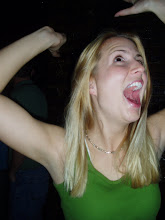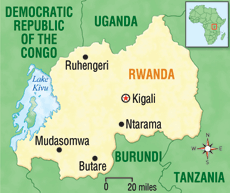Life continues here at the convent. We are currently on our third week, having been inundated with language classes and a sprinkling of technical health and cross-cultural training. The bulk of my time is spent in a small thatched hut, repeating words that contain more a’s, b’s, and u’s than I thought was humanly possible. The language seems at least somewhat straight forward until you learn, as we did today, that there are 16 noun classes, and all associated adjectives must be conjugated accordingly. Rumor has it that Kinyarwanda is one of the hardest languages in the world, second only to Mandarin. Like any language, the words of the language tell you what is important to the culture (like the Inuit and their numerous words for snow.) For example, when a baby is born in Kinyarwanda, one expresses “niyonkwe” (“I wish you to nurse well”) to the mother. This is meant not only for the baby’s health and nutrition, but also for the mother’s sake.
We will continue to spend the greatest proportion of our time focusing on language through the sixth week of pre-service training (PST), when we make our initial visits to our sites, because that will truly be the key to making a difference in the health of our communities, especially in the rural areas where they only speak Kinyarwanda. If you can’t communicate with someone, how are you going to tell them the importance of washing their hands or staying on the ARV regimen prescribed?
Outside of class, I have started visiting our resource families. Fortunately and unfortunately for me, several of my resource family members speak English very well. For the first few visits, this has been great because they have served as an important source of cross-cultural information, but my terrible pronunciation means that I definitely should be spending more time speaking Kinyarwanda with them. On Sunday, the family taught me the traditional Rwandan dance, though they claimed I looked more like I was driving a cow than imitating it. Here the dances are more than just dances, they are a means of communication: women dance as though to mimic a cow and men’s dance moves resemble the fighting of a battle.
I have also been exploring Butare through runs, hikes, and other excursions. Butare consists of one main paved road leading to the university, along which shops, internet cafes, and hotels serve as a backdrop for the hustle and bustle of the town. Just a turn off the paved main road, however, you come face to face with cows and herds of goats. Though we still get stares and the occasional “muzungu” (white person), life has become so routine that I often forget I have only been here a couple of weeks. Amazing how quickly we adapt!
I finally have a Rwandan cell phone, so if you don’t have the number and need it let me know.


